
By Patrice Gopo | Twitter: @patricegopo
Hidden beneath the clang of random crockery, the rustle of a few books, and the musty scent of cardboard boxes, I find three canvas paintings of cupcakes, maybe 8-inch square.
I draw my finger around the shape of one of the cupcakes and touch the rough edges of some unidentifiable art substance resembling upscale puffy paint or inedible frosting. Feeling the trio of canvases in my hands, I envision where I will place these paintings in my new home. In time, I know the cupcakes will find a place of honor on the blank walls because of my admiration for the artwork, but even more for the artist. Gazing at the bright images reminds me of the type of woman I want to be, the type of wife and mother I hope to become, and the type of home I want to have.
I remember the day in Cape Town as I was leaving Daphne’s house, my daughter snapped in her baby carrier on my chest, my feet ready to make the short walk back to my flat. Beside the entrance to Daphne’s catch-all room that doubled as a sewing room and artist’s haven, I saw the paintings of cupcakes.
“Those are cute,” I said knowing the talents of my hostess.
“Thanks. Do you want them?”
“I can have them?” I stooped to the ground, shifting my daughter’s weight to give me more space to kneel. My fingers traced the shape of one of the cupcakes.
“Yes, I’m trying to find a new home for them. Too many paintings in the house.” Her arms motioned to the walls on both sides of the hallway covered with a mixture of artwork and photographs.
“Yes! I want them.”
My imminent return to America sometimes felt as if I were counting down the days until the start of school. At other moments, I felt like a bright-eyed child counting down the minutes until Christmas morning. In the midst of those confusing emotions, I wanted to cling to this home and this woman who had cared for me as an extension of her own family.
Daphne rescued things others would likely discard. White shirts that stained or yellowed with time were dyed black. The desk that was too old, too big, and too much of a nuisance found new life as end tables. A lonely wife was offered genuine friendship.
She and her husband attended the church my husband brought me to right after our wedding and my move to South Africa. Just when my own well of loneliness threatened to submerge my head and leave me gasping for mercy or a return ticket to America, she invited me to be part of her life.
I would drop in for an occasional visit, and her smile made me think she was hoping I’d stop by for a chat. She answered the door dressed in blacks, whites, and shades of grey. Sometimes color burst forth in a shiny beaded necklace or a pair of orange flats. The linens and cottons flowed on her body like a spring breeze or gentle stream matching the ease of her own words.
“Hello! Are you coming for a cup of tea?” she would say.
To me, her cups of tea reminded me of water in her garden. In much the same way that she coaxed her plants to flourish through water, I flourished during conversations that came with Daphne’s tea. She listened to my stories and dispensed encouragement through her own personal experiences. Her eyes were pregnant with the wisdom that comes from years of life, marriage, and motherhood.
As we talked over tea, her hands were constantly creating: salads for lunch, mosaics out of old china, or sketches in her notebook. As I watched her hands in motion, I felt the urge to revisit creative parts of me long neglected. I imagined Daphne’s childhood was filled with birds with broken wings, necklaces that no longer clasped, and friends with painful family secrets.
A few months after my daughter’s birth, Daphne held my baby in the crook of her arm while I sat across the table watching them. The sticky sweet smell of new baby and the spice of fresh cut flowers gave the room the peaceful aroma of God’s creation. Daphne glanced at me as I enjoyed a rare, hands-free moment and sipped my tea.
“Try to remember what you like to do,” she said. “They grow up.” Her eyes glanced down at my daughter, “And one day you’ll want to remember what you liked to do before they were the only thing you did.”
Maybe it was at the end of that particular visit when I found the cupcake paintings. Or maybe it was months later after another visit whose words may have been different, but the comfort existing in the room was still the same. What happened just prior to securing the three paintings, I can’t recall as it blends into one long, pleasant memory.
Now in my new city of just over a year, I stare at the blank walls of my new house while my hands hold colorful paintings of cupcakes.
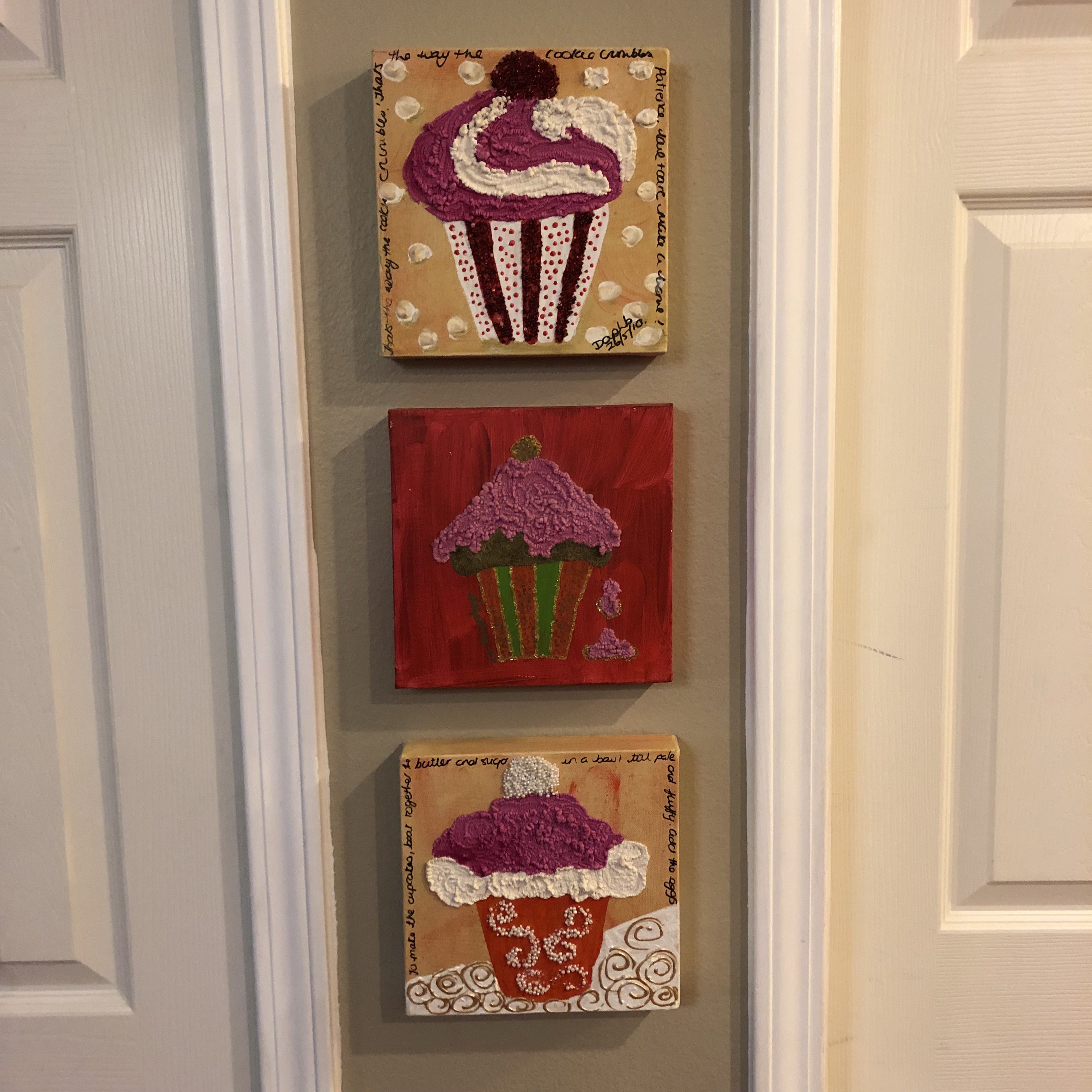
I am reminded that Daphne’s paintings challenge me to give of myself and the things I create. This may be a meal I prepare for guests, a home I long to decorate in the calming design of coziness, or a poem I write for my daughter. I am also reminded of my desire to let my love for God translate into care for my family, my friends, and the people who divinely link to my life in ways I didn’t plan.
And, finally, as I glance once more at those paintings and write this final sentence, I am reminded to be kind to myself and cherish my own dreams.
***
About Patrice:
 Patrice Gopo is a 2017-2018 North Carolina Arts Council Literature Fellow. She is the author of All the Colors We Will See: Reflections on Barriers, Brokenness, and Finding Our Way (August 2018), an essay collection about race, immigration, and belonging. Please visit patricegopo.com/book to pre-order her book. Facebook: @patricegopowrites Instagram/Twitter: @patricegopo
Patrice Gopo is a 2017-2018 North Carolina Arts Council Literature Fellow. She is the author of All the Colors We Will See: Reflections on Barriers, Brokenness, and Finding Our Way (August 2018), an essay collection about race, immigration, and belonging. Please visit patricegopo.com/book to pre-order her book. Facebook: @patricegopowrites Instagram/Twitter: @patricegopo
***

Our theme this month is “Hospitality Around the World.” Email me at scrapingraisins @ gmail (dot) com if you are interested in guest posting. Guest posts should be between 500 and 900 words. Be sure to include a headshot and bio. The theme for August is “Homelessness, Refugees & the Stranger,” so send me a post for that, too, if you have a good idea!
And if you’re not a writer, be sure to follow me on social media (links in upper right) to keep up with the latest blog post or sign up for my newsletter below for links to thought-provoking articles, a digest of blog posts, and a few things I’m into these days! xo
Sign up for the (occasional) Mid-month Digest and the (loosely) “end of the month” Secret Newsletter for Scraping Raisins Here:
*This post originally appeared at Ungrind and is used with permission.
**Includes Amazon affiliate links.


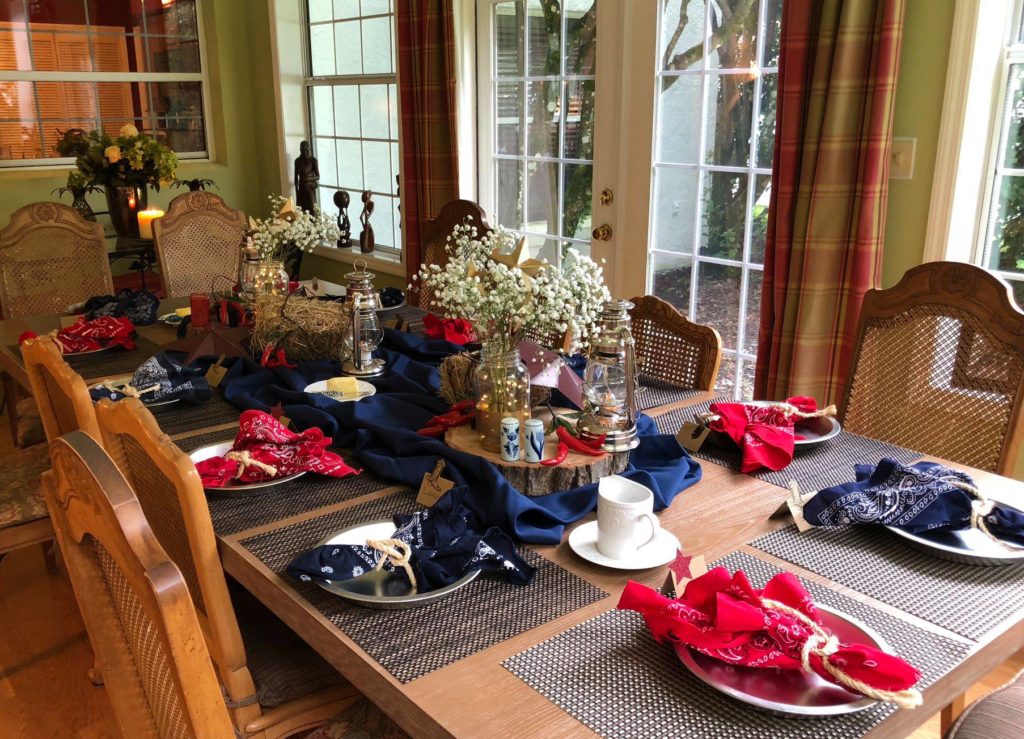
 This month on Scraping Raisins we’re talking about practical and impractical hospitality. Be sure to follow along on my social media channels (buttons on top right of website) and subscribe to my newsletter to be updated on all the posts, plus links to thought-provoking articles from the web and a few books and podcasts.
This month on Scraping Raisins we’re talking about practical and impractical hospitality. Be sure to follow along on my social media channels (buttons on top right of website) and subscribe to my newsletter to be updated on all the posts, plus links to thought-provoking articles from the web and a few books and podcasts.
 Judy Douglass is a writer, editor, speaker, encourager. She partners with her husband, Steve, to lead Campus Crusade for Christ (Cru) globally. She writes at
Judy Douglass is a writer, editor, speaker, encourager. She partners with her husband, Steve, to lead Campus Crusade for Christ (Cru) globally. She writes at 
 Sarah loves words. She also loves people. And she loves weaving them together in honest and vulnerable ways that cut underneath the surface and break open the longings of the heart. She is a writer whose words breathe vulnerability and hope into longing souls. Sarah is a director for a nonprofit student center, writes for numerous international ministries, is a member of Redbud Writers Guild, and invites readers to sit with her awhile at
Sarah loves words. She also loves people. And she loves weaving them together in honest and vulnerable ways that cut underneath the surface and break open the longings of the heart. She is a writer whose words breathe vulnerability and hope into longing souls. Sarah is a director for a nonprofit student center, writes for numerous international ministries, is a member of Redbud Writers Guild, and invites readers to sit with her awhile at 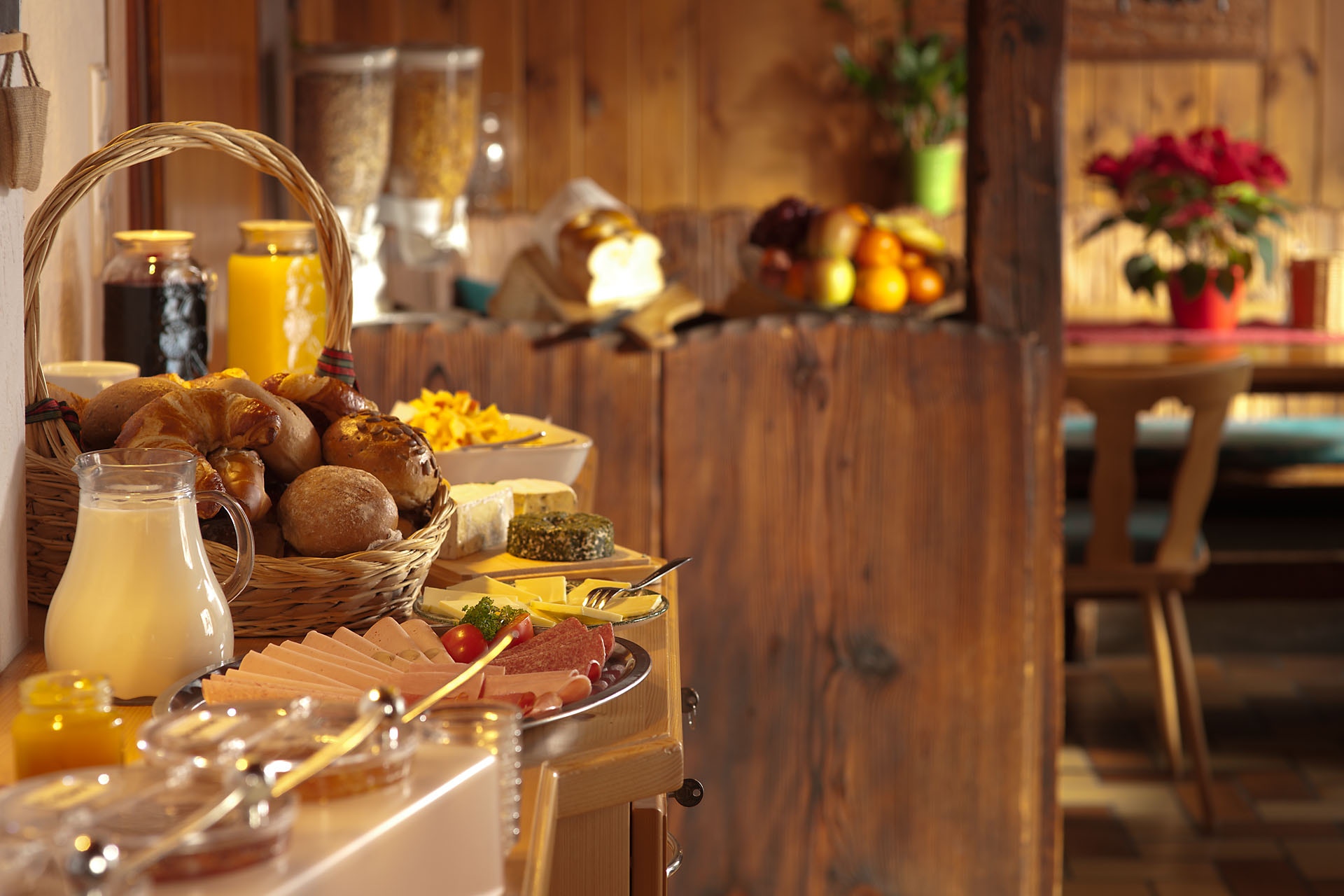
 Ronne Rock weaves themes of transformative hope into everything she shares on page and stage. An award-winning marketing and communications executive in both the corporate and nonprofit sectors, she offers expertise about creative leadership with faith-based organizations. Ronne is a regular contributor to Orange and QARA, a digital publication that empowers 20-somethings to discover their True North. She now invests her time telling stories that change stories with Orphan Outreach, a ministry dedicated to serving orphans and vulnerable children in developing countries around the world. Ronne also loves to share personal stories about life, love, leadership, and a little #kitchentherapy. Her words are published in
Ronne Rock weaves themes of transformative hope into everything she shares on page and stage. An award-winning marketing and communications executive in both the corporate and nonprofit sectors, she offers expertise about creative leadership with faith-based organizations. Ronne is a regular contributor to Orange and QARA, a digital publication that empowers 20-somethings to discover their True North. She now invests her time telling stories that change stories with Orphan Outreach, a ministry dedicated to serving orphans and vulnerable children in developing countries around the world. Ronne also loves to share personal stories about life, love, leadership, and a little #kitchentherapy. Her words are published in  In honor of this month’s theme, I’ll be giving away a copy of
In honor of this month’s theme, I’ll be giving away a copy of 
 Katie Nordenson is a web editor and content manager living in the Twin Cities with her husband and rescue dog. She spends her time reading, exploring her adopted city, and slowly learning to love and serve her neighbor. You can find her at her
Katie Nordenson is a web editor and content manager living in the Twin Cities with her husband and rescue dog. She spends her time reading, exploring her adopted city, and slowly learning to love and serve her neighbor. You can find her at her  The theme for August is “Homelessness, Refugees & the Stranger,” so send me a post for if you have an idea. Email me at scrapingraisins @ gmail (dot) com if you are interested in guest posting. You can find submission guidelines
The theme for August is “Homelessness, Refugees & the Stranger,” so send me a post for if you have an idea. Email me at scrapingraisins @ gmail (dot) com if you are interested in guest posting. You can find submission guidelines 
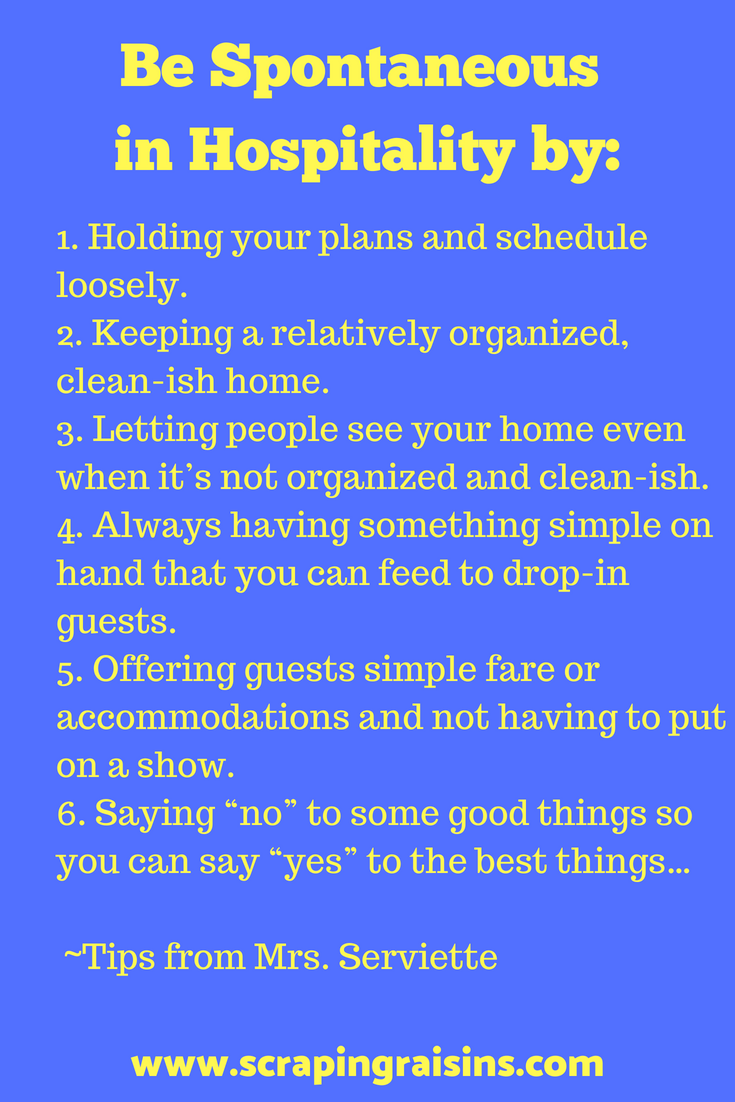
 Mrs. Serviette and her husband, Mr. Serviette, are North Americans living in Germany. They enjoy opening their home to people of all different cultures, backgrounds and religions. Their adventures in hospitality inspired Mrs. Serviette to to start her blog, The Serviette, which encourages people to share their tables in a way that bridges cultural and religious gaps, shows creativity, and serves others. Follow her at her
Mrs. Serviette and her husband, Mr. Serviette, are North Americans living in Germany. They enjoy opening their home to people of all different cultures, backgrounds and religions. Their adventures in hospitality inspired Mrs. Serviette to to start her blog, The Serviette, which encourages people to share their tables in a way that bridges cultural and religious gaps, shows creativity, and serves others. Follow her at her 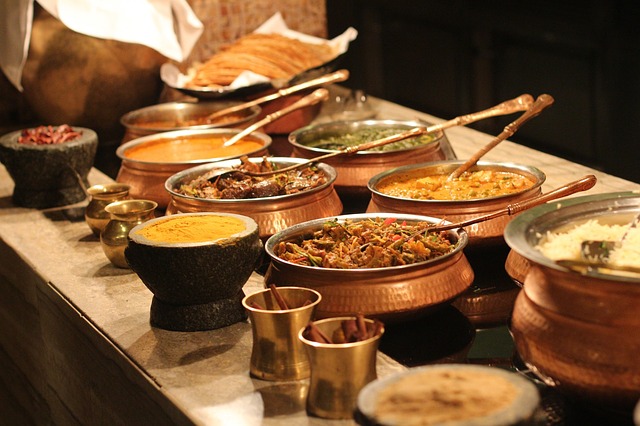
 Mary Grace Otis is a writer, editor, and podcaster who lives with her husband and three boys in northern Michigan. You can find her podcast and posts at
Mary Grace Otis is a writer, editor, and podcaster who lives with her husband and three boys in northern Michigan. You can find her podcast and posts at  We are giving away a copy of
We are giving away a copy of 


 Patrice Gopo is a 2017-2018 North Carolina Arts Council Literature Fellow. She is the author of All the Colors We Will See: Reflections on Barriers, Brokenness, and Finding Our Way (August 2018), an essay collection about race, immigration, and belonging. Please visit
Patrice Gopo is a 2017-2018 North Carolina Arts Council Literature Fellow. She is the author of All the Colors We Will See: Reflections on Barriers, Brokenness, and Finding Our Way (August 2018), an essay collection about race, immigration, and belonging. Please visit 
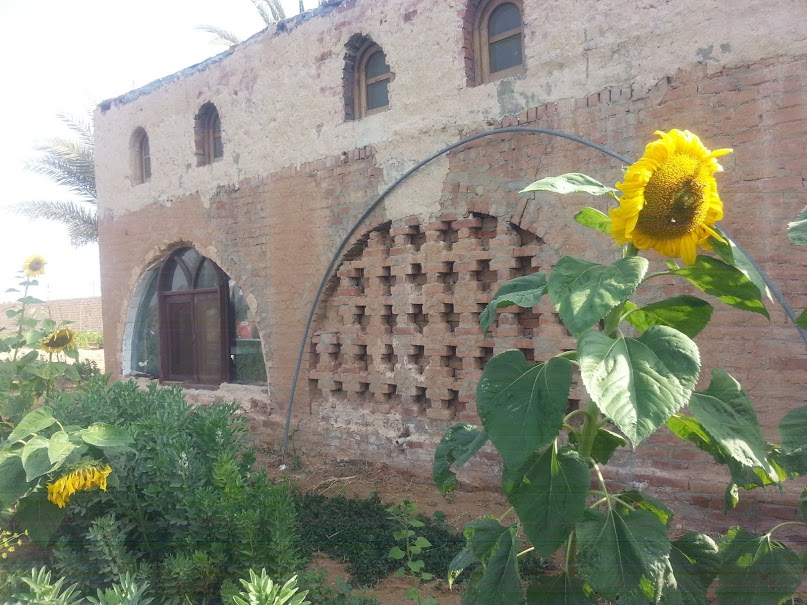
 A Coloradan by birth, Alicia currently lives in Cairo, Egypt with her husband, and three boys three and under. Always a nurse at heart, her impossible 24/7 job these days is keeping her boys alive while trying to learn Arabic, engage with her community, and listen to the stories of the refugees, Egyptians, and expats she is surrounded with. Follow her on Instagram
A Coloradan by birth, Alicia currently lives in Cairo, Egypt with her husband, and three boys three and under. Always a nurse at heart, her impossible 24/7 job these days is keeping her boys alive while trying to learn Arabic, engage with her community, and listen to the stories of the refugees, Egyptians, and expats she is surrounded with. Follow her on Instagram 
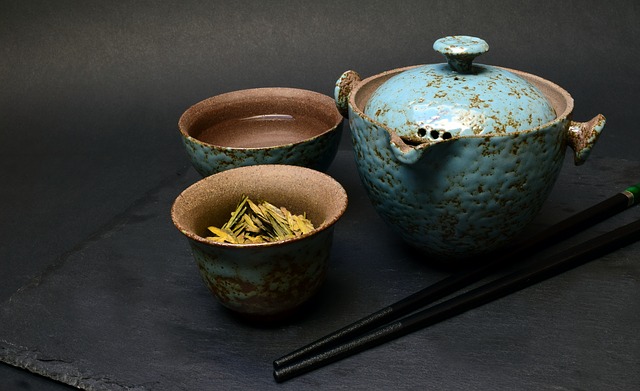
 As a mom, I juggle two different kinds of parenting — long-distance to our 3 adult kids (who are white on the outside but very Chinese on the inside) and our two adopted Chinese boys at home who have special needs. Since being back in the US, my husband has taken up cooking Chinese food, with a specialty of Lanzhou beef noodles (where we used to live and where our boys are from), giving us a taste of “home.” You can follow our story on my
As a mom, I juggle two different kinds of parenting — long-distance to our 3 adult kids (who are white on the outside but very Chinese on the inside) and our two adopted Chinese boys at home who have special needs. Since being back in the US, my husband has taken up cooking Chinese food, with a specialty of Lanzhou beef noodles (where we used to live and where our boys are from), giving us a taste of “home.” You can follow our story on my